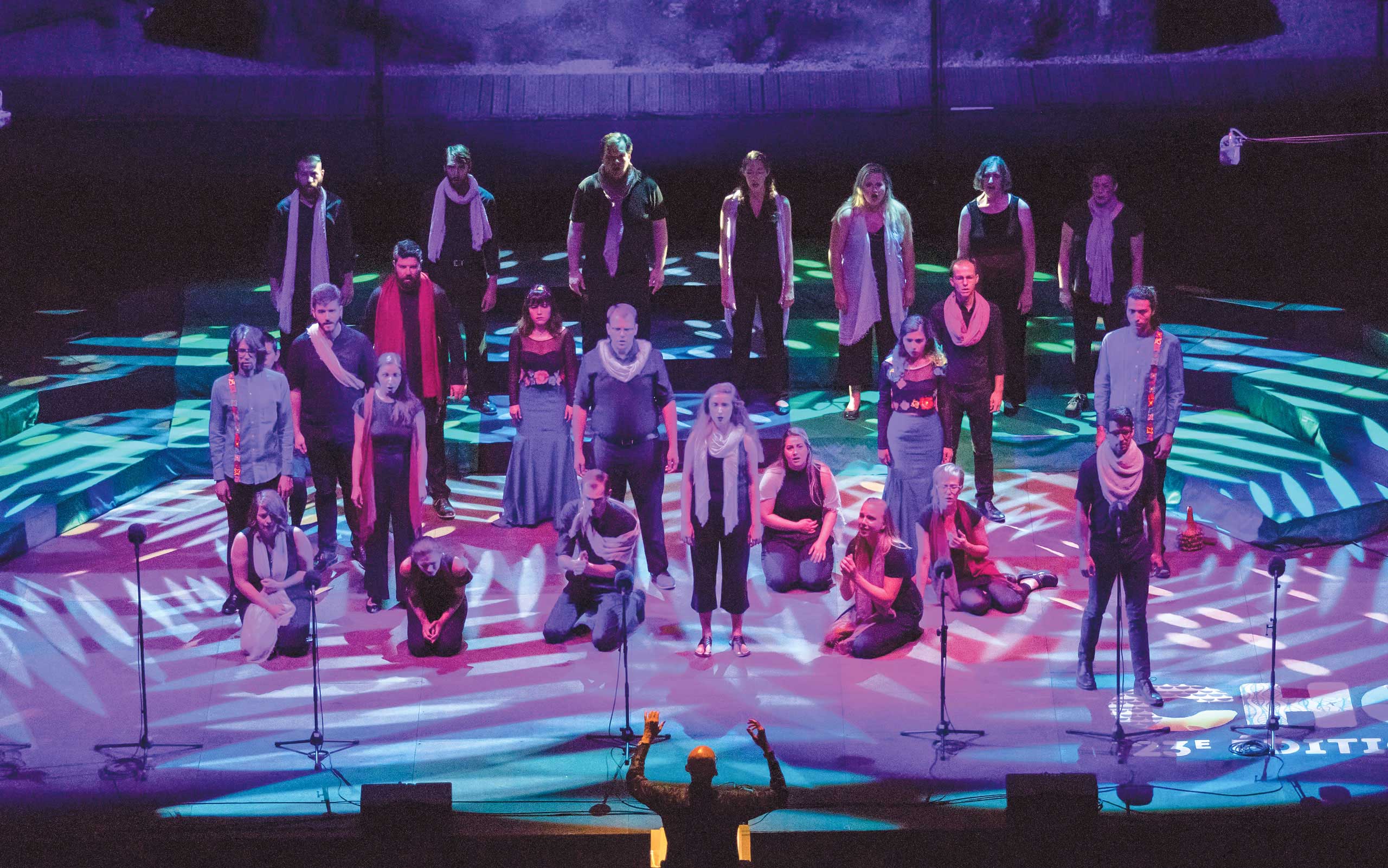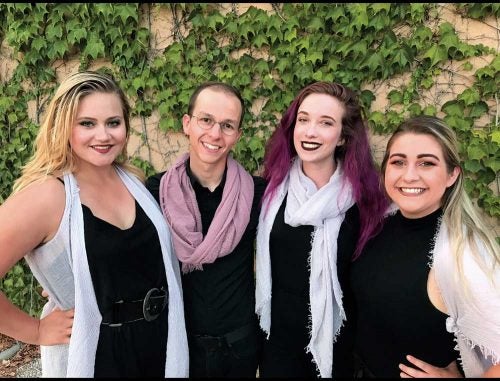
If you turned six around the turn of the century, your birthday wish list might have included a Razor Scooter, Tamagotchi, or maybe a Barbie princess.
Ashley Frezza ’16 asked for a queen. The Queen of Soul.
“I really wanted an Aretha Franklin CD,” Frezza says. “I loved the soulfulness she brought to everything.” What the 6-year-old Frezza couldn’t have known was that the “Respect” diva had an agenda. She was reaching out to the souls of her fans, weaving calls for civil rights, freedom, empowerment, and equity into the lyrics of her songs.

Now nearly 20 years later, Frezza is following Franklin’s lead, singing to advance social justice with VOICES21C (shorthand for Voices 21st century), a Massachusetts-based chamber choir, which, for the past four years, has been engaging in activism through music, selecting a different social justice theme to explore each year.
Frezza, an alto, is one of four URI alumni in the 22-member choir, singing alongside founding member Michael Genese ’16, Mallory Leonard ’18, and Nicolette Mingels ’16.
This year, the choir represented the United States at “Choralies” in Vaison-la-Romaine, France, performing in front of an audience of more than 6,000. Their 2019 program “Half the Sky: Voices, Struggles, Resilience and the Power of the Feminine Spirit” features musical compositions written mostly by female-identifying composers that incorporate text by women poets and activists.
“Half the Sky’s” setlist is organized into two parts. The first group of songs is inspired by Elvira Arellano, a Mexican-born activist who fights for illegal immigrants. The second set’s compositions take their inspiration from poet Audre Lorde, a self-described black, lesbian, mother, warrior poet, and 1960s-era civil rights activist.
Storytelling through song
People have been raising their voices in protest for a long, long time. In fact, songs and political movements often go hand-in-hand. Abolitionists, suffragettes, unionists, human and civil rights advocates, war protestors, gay rights proponents, environmentalists, pacifists—even vegetarians—have turned to song to advance their causes.
“Music has been a form of activism all over the world,” Frezza says. “It is a tool of expression and a universal language. Even if you are unable to understand the text being sung, you can hear it in the music and voices—the joy or anguish that is being portrayed.”
VOICES21C’s performances are immersive experiences. Song is accompanied by movement, improvisation, storytelling, and text. A performance comprises 8–10 songs. Genese, a tenor, believes music inspired by the words of impassioned activists can have a profound effect on both performer and audience. “Music is a phenomenal gateway into the vulnerable,” Genese says.
“We put so much into it physically and emotionally,” says Frezza. “It’s a little bit draining, but also exciting to tell these stories. We’re bringing life to the work of amazing activists and poets, and I’m becoming a better person for being exposed to them. I’m just so grateful.”
A powerful tool for change
VOICES21C has traveled to Israel, Palestine, Mexico, and now France. That the group is attracting international attention certainly reflects the talent of its members, but it could also have something to do with their process. Themes are discussed, input is valued, collaboration is essential, and innovation is prized.
“With only four years under our belts, I think we’re slowly making visible how the untraditional can be the most rewarding,” Genese says. “Our work isn’t based on any particular group or school of thought. There is this complete surrender of tradition and convention, and the ground we are breaking is completely new—to every one of us.”
Soprano Leonard agrees.
“I had not given much thought to music being utilized as a form of activism. I had thought of music as a therapeutic instrument,” Leonard says. “Now, I believe that music is a powerful tool to open up peoples’ minds to social justice issues happening worldwide.
“Music and art are important gateways to discussing difficult subjects,” she adds. “We challenge stereotypes through song in the hopes that music makes people receptive to our message.”
